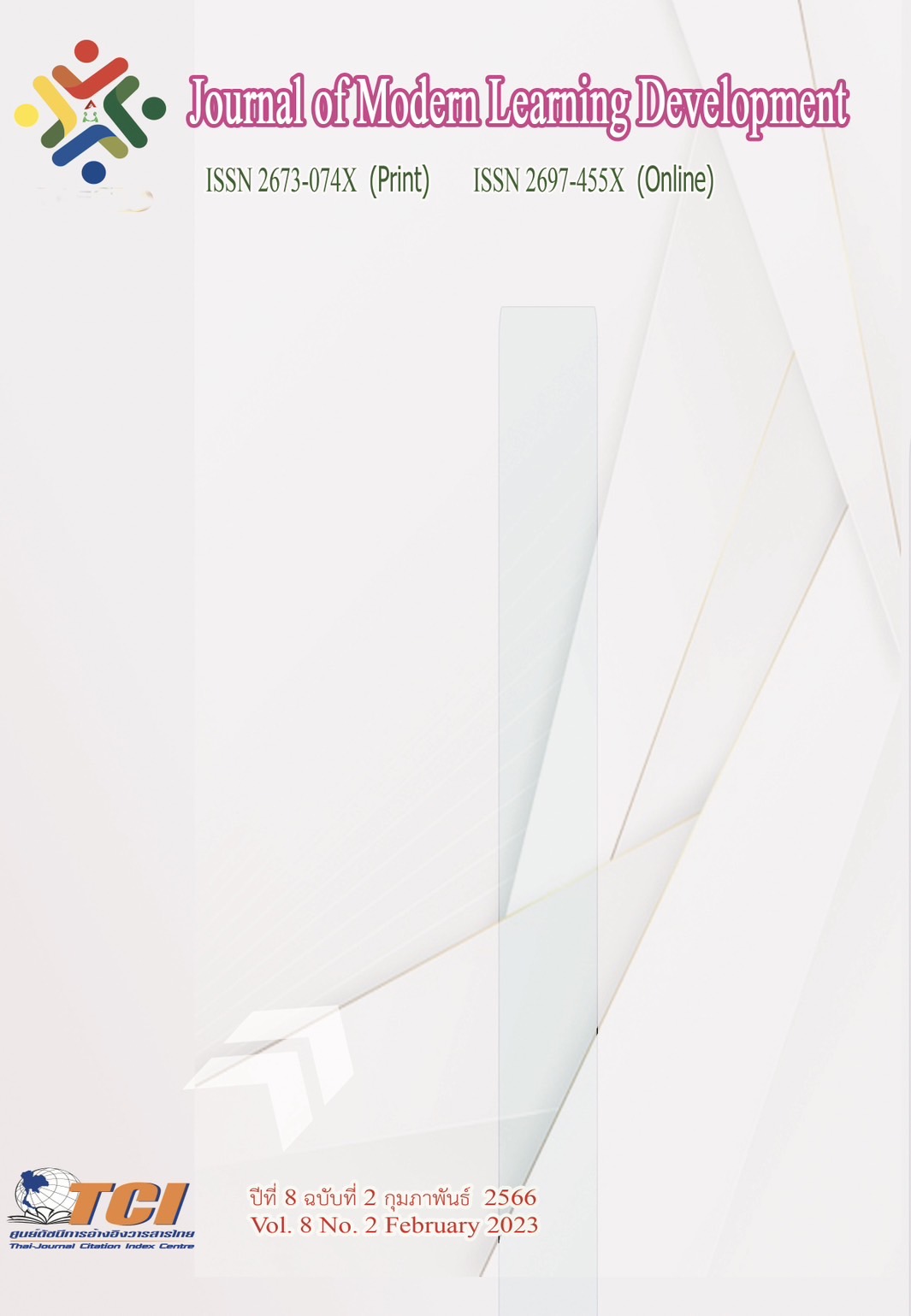The Development of Learning Management Models Based on the Concept of Active Learning to Promote for Mathayomsuksa 5 Students
Main Article Content
Abstract
The purposes of this research were 1) To Study the basic information about the development of a learning management model. 2) To develop a learning management model 3) To study the results of using the learning management model. and 4) To assess the learning management model. The sample of this study is group of 28 students of Mathayomsuksa 4, Research instrument 1) learning management model, 2) lessons plan, 3) citizenship assessment 4) achievement test 5) satisfaction questionnaire and 6) parents’ opinion questionnaire. Statistics used to analyze data include percentage, mean, standard deviation and t-test, The results revealed that,
1.The results of the basic data study revealed that students had an opinion of the current condition and learning management to promote citizenship overall is at a low level ( = 2.37, S.D. = 0.59). and the need for learning management overall is at the highest level (= 4.54, S.D. = 0.54).
2. The results of the development of the learning management model revealed that there are 4 learning management styles. The steps are 1) the problem stimulation stage, 2) the summary data collection stage, 3) the community service implementation stage, and 4) the exhibit and evaluation stage.
3. The results of the use of the learning management model show that students have developed citizenship higher at all stages and was significantly post-achievement test higher than pre-achievement test at the level of .05
4. The results of the assessment of the learning management style showed that the students were satisfied with the overall learning management model is at the highest level (= 4.53, S.D. = 0.61), and parents have the highest overall opinion on the learning management model (= 4.51, S.D. = 0.57).
Article Details
References
ชวลิต ชูกำแพง. (2555). หลักสูตร : การวิจัยและพัฒนา. มหาสารคาม: สำนักพิมพ์มหาวิทยาลัยมหาสารคาม.
บุญชม ศรีสะอาด. (2553). การวิจัยเบื้องต้น. กรุงเทพมหานคร: สุวีริยาสาส์น.
บุญเลี้ยง ทุมทอง. (2556). ทฤษฏีและการพัฒนารูปแบบการจัดการเรียนรู้. กรุงเทพมหานคร: สํานักพิมพ์แห่งจุฬาลงกรณ์มหาวิทยาลัย.
Dewey, J. (2005). How we think: a restatement of the relation of reflective thinking and the educational process. NY: D. C Heath.


